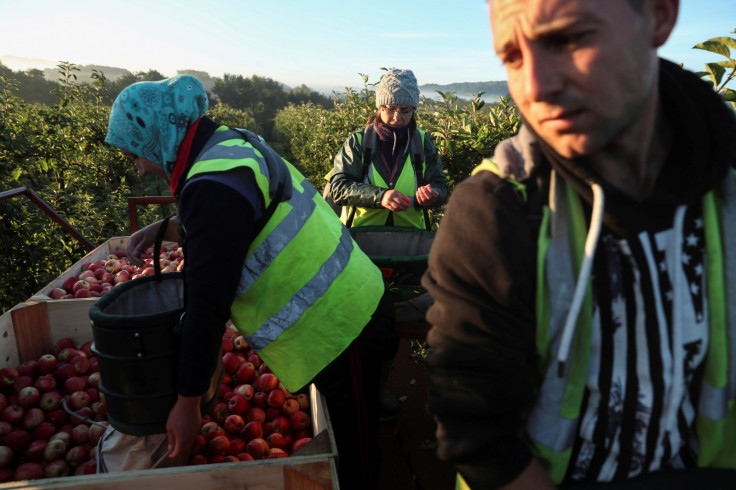Brexit impact: Food prices will rise if EU workers leave UK, warn industry groups
Government needs to ensure EU workers are provided work even after UK leaves the bloc, food industry says.

Food prices in the UK will increase if EU workers leave the country post Brexit, food and drink industry groups have warned in an open letter to the government. They said that to prevent EU citizens from leaving the country, the government should ensure that they are provided work opportunities even after UK leaves the bloc.
The letter was endorsed by 30 food and drink industry bodies, including the Food and Drink Federation, the British Retail Consortium, the British Beer & Pubs Association, the British Growers Association the British Soft Drinks Association and the National Farmers Union among others. These groups represent various companies including manufacturers like Unilever and Premier Foods along with supermarkets such as Tesco, Sainsbury's, Asda and Morrisons.
According to the Guardian, the letter read: "Workers from the European Union, some of whom are already leaving the UK, play a significant role in delivering affordable and high-quality food and drink....[They provide] an essential reservoir of skilled, semi-skilled and unskilled labour.
"All options should be explored, including a workable points-based system for shortage occupations, sector-based and seasonal/guest worker schemes and effective transitionary arrangements. If it is not, the UK will face less food choice and higher food prices. The government can address this issue directly. It should offer unambiguous reassurance to EU workers throughout our supply chain about their right to remain here."
About a month back, the Association of Labour Providers (ALP) had said that the UK food industry was facing a shortage of workers which was a result of the Brexit vote. The specialist trade association had then said that labour shortages had reached the worst levels since 2004.
David Camp, CEO at ALP said that 90% of temporary labour jobs in the sector were previously held by workers from EU – who backed away from their jobs following the UKs decision to leave the bloc.
He stated that the decline in the value of the pound and the uncertainty over the free movement of EU workers across the UK were the two primary reasons for the workers to have pulled out.
According to reports, there are about four million people currently working across the food and beverages industry in various roles including growing, harvesting, producing, packaging, selling and serving. A large percentage of these are said to be EU nationals.
© Copyright IBTimes 2025. All rights reserved.





















